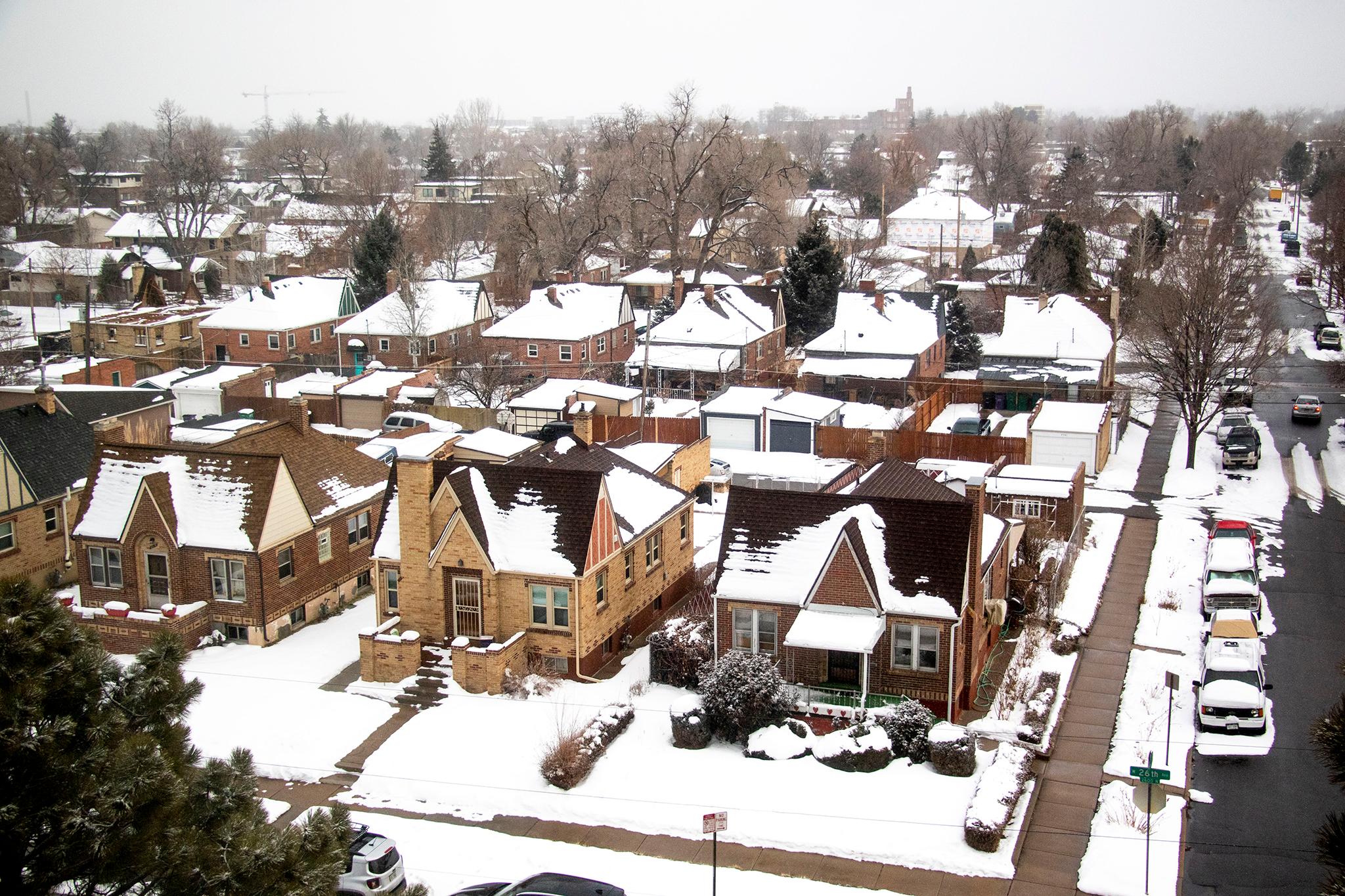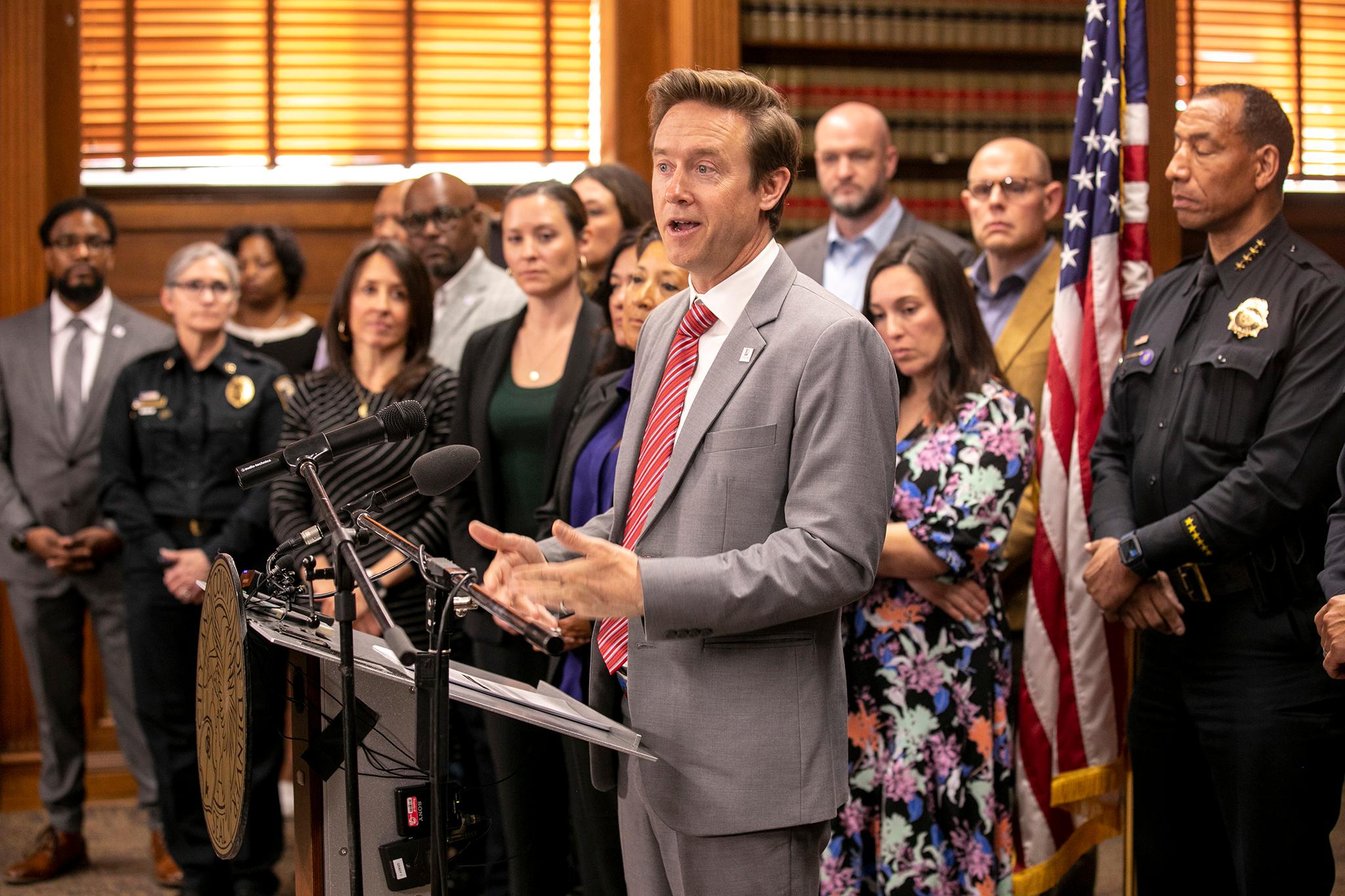Every now and then, City Council asks voters to approve changes to the City's Charter -- the law book. Sometimes the tweaks are a big deal. Sometimes the ramifications aren't so obvious.
In the case of Referred Question 2M, Council wants voters to cut several pages in the Charter that outline the Board of Adjustment's responsibilities. The Board of Adjustments is the institution that considers zoning appeals, variances and exceptions from property owners wanting to make changes that don't conform to code.
Altering the charter will tee up City Council to expand reasons zoning appeals are considered. For example, currently, ADA compliance, affordability and preserving the tree canopy are not valid reasons for an exception to the zoning code. If voters cut the language in the charter, those could become valid reasons to appeal for zoning changes.
Here's the language you'll see on the ballot:
How would it work?
If Referred Ordinance 2M passes, several pages of the City Charter would be removed that establish the Board of Adjustment, a body that exists to hear complaints and exceptions to the city's zoning code, which governs what can and can't be built, remodeled, torn down, and so forth.
The body was established in the charter in 1923, and it may be time for a refresh, according to City Council. This vote won't cut the Board of Adjustment or change anything but the charter, since the responsibilities of the Board of Adjustment are mirrored in Denver's zoning code.
But lifting the language would allow City Council to establish a new way for zoning appeals to take place -- which has yet to be decided. And it would also allow councilmembers to consider expanding reasons for zoning variances.
Here's what a yes vote would take out:
Currently, the Board of Adjustment comprises five members whom each serve five-year terms.
The board can hear and decide appeals if there is a dispute over zoning, make exceptions to the zoning code, and approve variances from the code. The board needs four members to vote to reverse a decision or make an appeal.
The Charter establishes how meetings are set and by whom (the chair). And it establishes that the meetings should be public and minutes should be kept that are publicly accessible.
The charter currently explains how appeals work and who can make them and hear them and what happens if somebody thinks the Board of Appeals made a bad call. In that case, it goes to court. The Charter explains how that process would work.
Instead, all of that language would be replaced, in the charter, with a significantly smaller section giving City Council more flexibility in creating a pathway for the City of Denver to address appeals, variances and exceptions to the code.
That stripped-down version would look like this:
City Council has already begun working on a text amendment to the rules in the zoning code that would proceed if voters changed the charter. If the public doesn't, those changes won't move forward.
Here are the changes that City Council could make through the text amendment if voters change the Charter.
- Adjustments could be made to the code to allow a project to comply with federal laws like the American Disabilities Act and the Federal Fair Housing Act.
- Variance or adjustments could be made to create more income-restricted housing.
- Minor permitting and construction errors could be accounted for in the adjustment or variance process.
- Unusual physical circumstances are currently permitted as a reason for a variance, but that definition could also be expanded to include preserving buildings and mature trees already on a site.
- City staff would have more power to make adjustments without a formal Board of Adjustment hearing for smaller considerations.
Who's for it?
There are no committees registered to officially support 2M (and also none that oppose it).
All thirteen members of City Council voted to refer this question to the voters. Its sponsors were councilmembers Robin Kniech and Amanda Sandoval.
Sandoval took interest in the issue after the Board of Adjustments heard a case in the Sunnyside neighborhood about a man who wanted to build an accessory dwelling unit for his aging mother. He was around 90 feet short of zoning requirements and was looking for an exception. The Board of Adjustments initially turned down his request. He brought it to City Council's public comment period and complained about it.
"I could understand why this person was denied when other cases similar to that case had actually been approved," Sandoval said.
Eventually, the Board changed its mind on that case, but Sandoval, looking at the inconsistencies in decision making, decided it was time for a change to rules passed in the 1920s, when the Ku Klux Klan led Denver.
From early in her time on Council, Kniech had wanted to change the rules and particularly expand why exceptions to zoning rules could be made.
After all, 87% of zoning variance requests come from regular homeowners in Denver, she said.
"They have difficulty trying to meet the 100-year-old criteria in our charter, which require proving a 'hardship,'" Kniech explained in an email.
"We can modernize the criteria to allow reasonable variances for existing buildings that are in line with Denver's values and adopted plans such as preserving older existing buildings, sustainability like working around mature trees, and maximizing affordable housing," she added. "This change will also allow our city to function more efficiently as our code evolves in the future."
Who's against it?
As said above, no committees registered to oppose 2M (and none registered to support it).
We have not found any opposition to the referred question, and Denver voters have historically approved changes to the charter referred to them by City Council.
If opposition arises, we will update this story.
Need more help voting? Check out the rest of our voter guide here.












